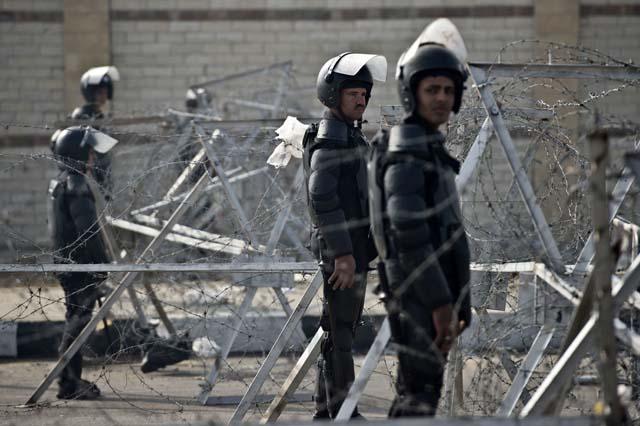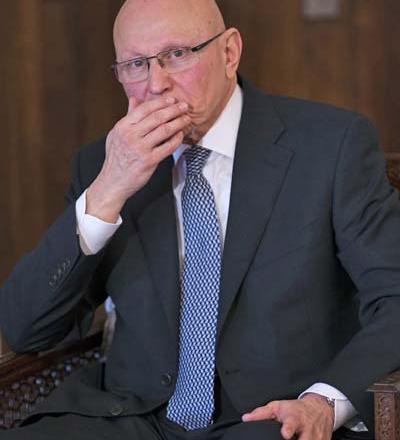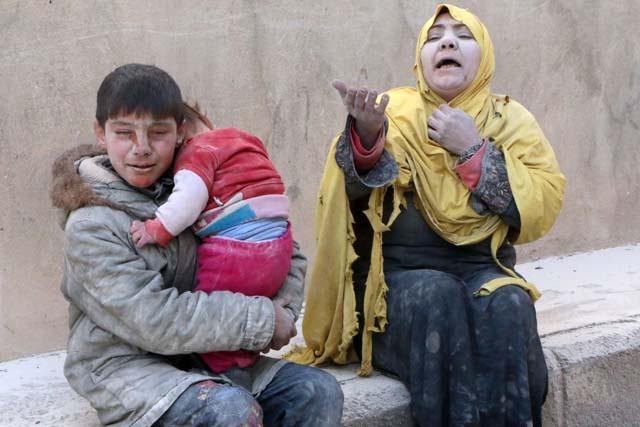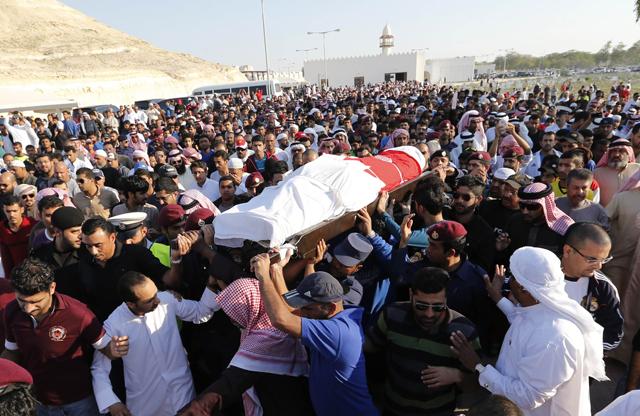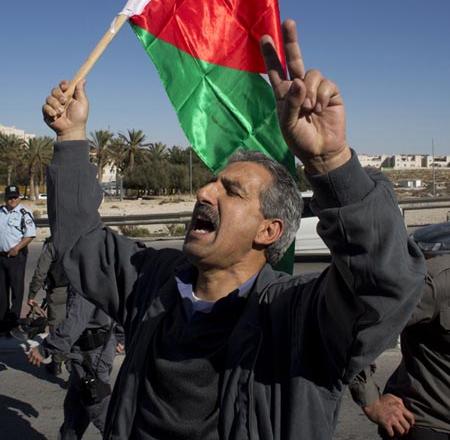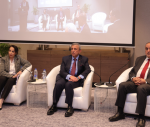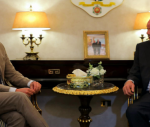CAIRO — Egypt’s deposed president Mohamed Morsi charged he was being muzzled in a soundproof dock at the start of his trial on espionage charges Sunday, as his defence lawyers staged a protest walkout.
The court adjourned the trial, the third for the Islamist since his July 3 ouster, to February 23 to allow the lawyers’ syndicate to appoint new lawyers.
Morsi, who has shouted that he was Egypt’s legitimate and elected president in hearings of other trials against him, said the court was trying to silence him.
“We are in a farce, all this because you are afraid of me. You are afraid that the president speaks,” Morsi cried out.
“If this farce continues, don’t come to the court,” Morsi told his defence.
Mohamed Selim Al Awa, a member of the defence team, told AFP: “We have withdrawn until the court removes the glass cage, we will not get in the room today.”
The soundproof dock is designed to stop Morsi and the other defendants from interrupting the proceedings with outbursts. On Sunday, 20 defendants were brought to court, including Morsi, who was placed in a separate dock with a former aide, and the Brotherhood’s supreme guide Mohamed Badie and his deputy Khairat Al Shater.
The accused include former presidential aides and renowned political scientist Emad Shahin, who is being tried in absentia.
The latest court case is part of a relentless government crackdown targeting Morsi and his Islamist supporters since he was ousted by the military after a single year in power.
Morsi and 35 others, including leaders of his Muslim Brotherhood, are accused of espionage “for the international organisation of the Muslim Brotherhood, its military wing and [Palestinian] Hamas movement”.
If found guilty, the defendants could face the death penalty.
Morsi, who was Egypt’s first democratically elected and civilian president, is already on trial for alleged involvement in the killing of opposition protesters in December 2012.
Along with 130 others, including dozens of members of Hamas and Lebanon’s Shiite group Hizbollah, he is separately being tried on charges linked to a jailbreak during the 2011 uprising that toppled strongman Hosni Mubarak.
The ousted leader also faces trial for “insulting the judiciary”. A date for that has yet to be set.
In the espionage trial, the prosecution aims to implicate Morsi in a vast conspiracy involving foreign powers, militant groups and Iran to destabilise Egypt.
The defendants are accused of “espionage for foreign organisations abroad to commit terrorist attacks in the country”, a prosecution statement said.
Some defendants, including Essam Haddad, Morsi’s second in command when president, also stand accused of betraying state secrets to Iran’s Revolutionary Guards.
During Morsi’s short-lived presidency, ties flourished between Cairo and Hamas, a Palestinian affiliate of the Muslim Brotherhood which rules neighbouring Gaza.
But since July, Egypt’s military-installed government has accused Hamas of backing Morsi and his Brotherhood and carrying out terrorist attacks inside Egypt.

